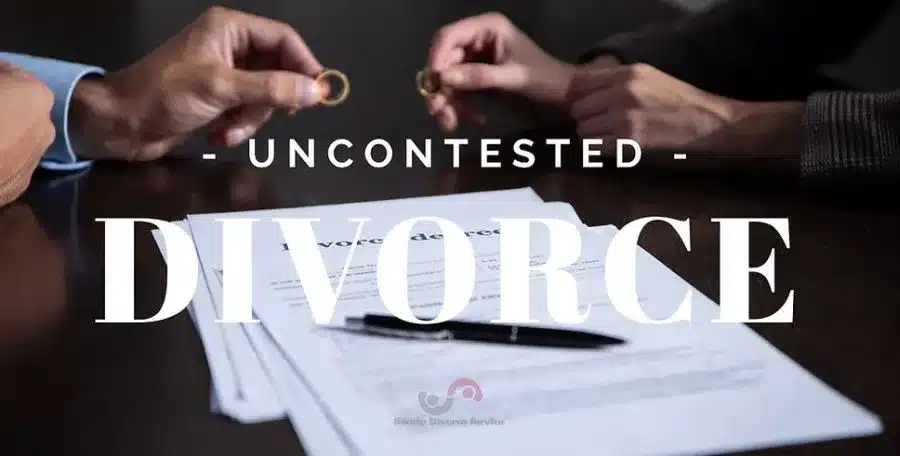Divorce is rarely an easy process, whether it’s amicable or contested. But navigating it successfully often comes down to three essential principles known as the 3 C’s of Divorce: Clarity, Communication, and Cooperation.
💔 A Modern Guide to Clarity, Communication, and Cooperation
These guiding principles can help you reduce conflict, protect your interests, and set a healthier foundation for the next chapter of your life. Whether you are just considering divorce or are in the middle of proceedings, understanding the 3 C’s can make a profound difference in the outcome—and in your peace of mind.
Let’s explore each of the 3 C’s in depth, along with practical tips, frequently asked questions, and strategies you can put to use right away.
🔍 1. Clarity
Clarity means having a clear understanding of your rights, obligations, goals, and the legal process. Divorce can be emotional and confusing. If you don’t take steps to clarify the important details early, you risk misunderstandings, unfair agreements, and lingering disputes.
How to Cultivate Clarity:
- Educate Yourself: Learn how divorce works in your state—procedures, timelines, and requirements.
- Know Your Finances: Gather all financial records, including income, assets, debts, and expenses.
- Define Your Priorities: Decide what truly matters most to you—custody, property, or closure.
- Clarify Your Legal Position: Even in an uncontested divorce, you should understand your legal rights and potential consequences before signing anything.
Pro Tip:
Consider making a checklist of everything you need to resolve (child custody, support, division of property, debt responsibility, retirement accounts). This checklist becomes your roadmap to a comprehensive settlement.
💬 2. Communication
Divorce has a way of derailing healthy communication, replacing it with blame and anger. But respectful, consistent communication is key to achieving fair agreements and reducing stress.
Communication Doesn’t Mean Friendship—It Means Clarity and Respect.
Even if emotions are high, keep your communication:
✅ Focused: Stick to the facts and decisions at hand.
✅ Neutral: Avoid inflammatory language and accusations.
✅ Documented: Keep written records of important conversations and agreements.
How to Improve Communication During Divorce:
- Use Email or Text: Written communication reduces misunderstandings.
- Schedule Check-Ins: If safe, schedule regular times to discuss divorce issues instead of spontaneous arguments.
- Consider Mediation: A neutral third party can help keep conversations productive.
- Use “I” Statements: For example, “I feel concerned about the parenting schedule,” instead of “You never care about the kids.”
Pro Tip:
Establish a shared folder or email thread to track documents and agreements. Consistency helps prevent disputes later.
🤝 3. Cooperation
The third C—Cooperation—is about working together to reach agreements where possible. Cooperation doesn’t mean you have to give up your rights or agree to unfair terms. It means approaching the process as problem-solvers rather than adversaries.
When both spouses cooperate, they:
✅ Save money on legal fees
✅ Reach faster settlements
✅ Minimize emotional strain on children
✅ Retain more control over the outcome
Ways to Foster Cooperation:
- Stay Solution-Focused: Instead of rehashing old conflicts, concentrate on resolving current issues.
- Be Transparent: Share requested documents promptly.
- Practice Empathy: Try to understand the other person’s perspective, even if you disagree.
- Use Professional Support: Mediators, counselors, or divorce coaches can guide you toward fair compromises.
Pro Tip:
Write down mutual goals—like keeping kids’ routines stable or finalizing the divorce within six months—to create a sense of shared purpose.

✨ Why the 3 C’s Matter
When you integrate Clarity, Communication, and Cooperation, you not only improve your legal outcome but also your emotional resilience. The 3 C’s create a structure for navigating the complex territory of divorce with more confidence and less chaos.
Think of them as three pillars holding up the process:
- Clarity keeps you informed and prepared.
- Communication keeps you engaged and respectful.
- Cooperation keeps you moving forward.
This mindset empowers you to make decisions you can live with long after the divorce is final.
✅ 5 Practical Tips for Applying the 3 C’s
- Get Professional Guidance Early
Talk to a family law professional to get clear on your rights and options. - Create a Communication Plan
Decide how you will communicate—email, phone, mediation—and what topics to cover. - Document Everything
Keep records of conversations, agreements, and financial disclosures. - Use “Cooling Off” Time
If emotions escalate, pause discussions and revisit them later. - Prioritize Self-Care
Sleep, exercise, and emotional support are essential during divorce.
❓ Frequently Asked Questions About the 3 C’s of Divorce
If your spouse won’t engage productively, you can still maintain clarity and document your good-faith efforts. Mediation, attorney communication, or court intervention may become necessary.
Clarity protects you from agreeing to terms you don’t fully understand. Even if you didn’t initiate the divorce, you must still protect your interests and stay informed.
Yes. While cooperation may be harder, clarity and structured communication are even more critical when emotions run high.
Mediation is a process that can promote cooperation, but you can still be cooperative without formal mediation. Cooperation simply means you are willing to discuss solutions rather than fight over every issue.
You can be cooperative and assertive at the same time. Cooperation means you approach negotiations respectfully, not that you agree to everything. Define your non-negotiables early, and communicate them clearly.
🌱 Looking Ahead: Divorce as a New Beginning
Divorce is the end of a marriage, but it doesn’t have to be the end of your sense of self, security, or optimism. The 3 C’s provide a forward-thinking framework to transform a painful process into a manageable—and even empowering—experience.
By staying clear about your goals, communicating openly, and cooperating when possible, you lay the groundwork for smoother proceedings and a more hopeful future.
📢 Ready to Take the Next Step?
If you’re considering divorce or need help applying the 3 C’s to your unique situation, don’t face it alone. Our team is here to provide information, support, and affordable guidance so you can move forward with confidence.
👉 Contact us today for a free consultation and learn how clarity, communication, and cooperation can make all the difference in your divorce journey.
✅ Easy step-by-step guidance
✅ Flat-fee pricing — no surprises
📲 Call us now at (800) 432-0018




